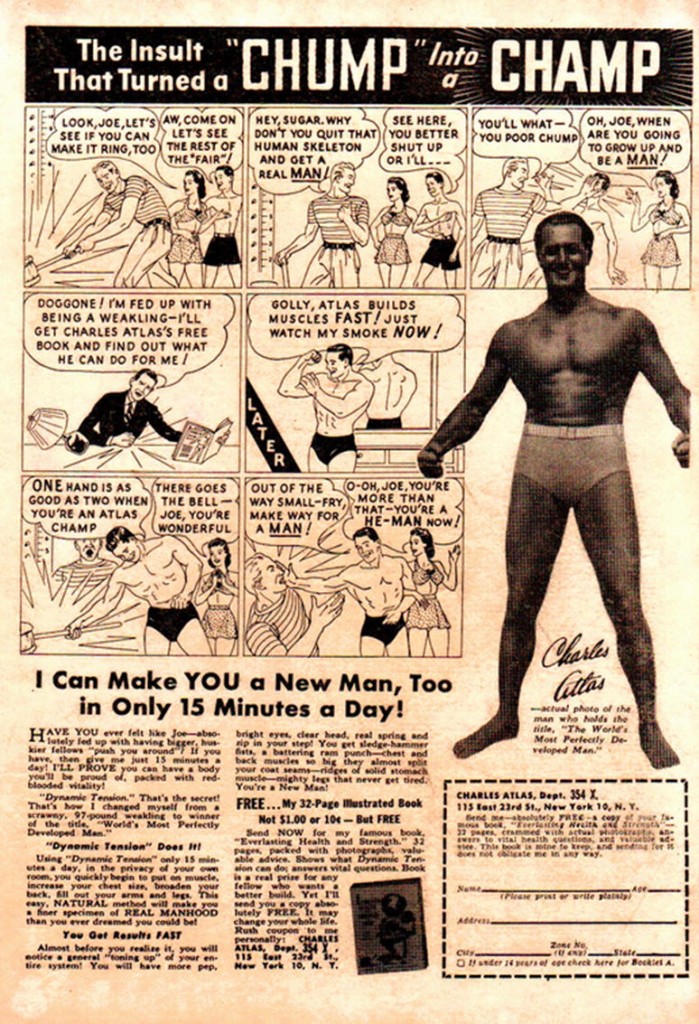The holiday season is upon us!
Many of your business will make a large chunk of your annual revenue between now and the end of the year. And quite a few of us spend a large chunk of our annual income on gifts, decorations, food, and the like.
Paradoxically, we’re told that November and December are also months in which discontentment and depression skyrocket. Add in the rotten state of the economy (what a terrible time to be unemployed or broke), and there are plenty of people feeling gloomy these days.
I had a moment not a couple of weeks ago where I felt as if I knew exactly how King Solomon felt when he wrote the Book of Ecclesiastes. The invisible part of me exclaimed “Vanity of vanities; all is vanity!”
But rather than submitting to despair, I found encouragement and inspiration reflecting on this book of wisdom. Now I’d like to distill some of that inspiration to you, if you don’t mind. I’ve pulled out six lessons which I believe will really benefit you as you strive to finish 2011 strong.
This is not a meant to be an exposition of the Biblical text, nor is it intended to be religious instruction. You can drop in on my weekly Bible study class if you’re interested in that. This newsletter is designed to help you build your business, and that’s what we’re going to do today.
Lesson 1: Enjoy What You Do
“A man can do nothing better than to eat and drink and find satisfaction in his work.” Ecclesiastes 2:24 New International Version
Who told you that work shouldn’t be enjoyable? The truth of the matter is that many Americans do not enjoy their jobs. Results released at the beginning of the year from a poll taken by the Conference Board indicate that only 45% of us are satisfied with our jobs. That’s the lowest level since they started taking the poll 22 years ago.
There are many factors that go into being satisfied with the work you do. There should be some level of enjoyment. Ideally, each of us would work in areas we’re gifted in, doing things we love to do. Thomas Edison is quoted as saying “I never did a day’s work in my life. It was all fun.”
Satisfaction also implies that your work means something to you. Your inner drives and passions should match with your work. If you’ve been hanging around me for long, you know that I’m a quote nut, so here’s another for you: Malcolm Forbes said that “the biggest mistake people make in life is not trying to make a living at doing what they most enjoy.” You don’t have to go to work just to get a paycheck or earn a living. In fact, you’re really robbing yourself if you think about business that way. You have something special to offer the world. Something great. You just have to figure out what that is.
If you’re in a position you’re not crazy about, I bet you can still find something about it to enjoy or to be satisfied about. There’s nothing better than to enjoy your work while you work toward your dream, whether it be a job or an entrepreneurial opportunity.
One more note here. The New American Standard phrases Ecclesiastes 2:24 a little differently. It says that “there is nothing better than for a man to…tell himself that his labor is good.” You should only be doing work you can feel good about. What good is money if you have to sell your soul and beat down your conscience to earn it?
Lesson 2: Give It All You’ve Got
“Whatever your hand finds to do, do it with all your might.” Ecclesiastes 9:10 New International Version
This is related to the first lesson. It’s worth saying, though.
To keep it simple, never give less than 100% in your work. Whether you run a Fortune 500 company or a neighborhood shop that’s been in the family for generations, work as smart and as hard as you can every day.
There are times when “coasting” seems like a good idea, You know the feeling. “I worked my butt off yesterday, so I think I’ll take it easy today.” This is especially easy to do when you aren’t finding satisfaction in what you’re doing.
You don’t need me to tell you that this mentality is appealing to all of us every once in a while. But giving into it is dangerous. Giving your best effort will bring success faster. You’ll experience breakthroughs that you’d have never come across just drifting along. And you’ll have a chance to gain mastery that comes with going all out. Anyone who wants to get to the top of their game and be recognized as an expert or superstar will have to put all their might behind their work.
This is not to say that you shouldn’t take vacations or enjoy your leisure time. You absolutely have to do that. But when you’re working, give it all you’ve got.
I’ve often noted that “success is never accidental.” If you insist on coasting or working half-heartedly, don’t hold your breath waiting on it. On the other hand, success can be coincidental. It tends to happen while you’re working hard.
Lesson 3: Live Up to Your Claims
“It is better to say nothing than to promise something that you don’t follow through on.” Ecclesiastes 5:5 New Living Translation
This lesson is simple enough, but so many businesses screw up at this point.
In a recent post on my blog, I put up a video of an old television commercial for Cash4Gold. I don’t have any issue with the concept of sending in jewelry in exchange for money. It’s a good idea: people need money, Cash4Gold and its counterparts are getting ultra-high rates for precious metals, so no one is really getting robbed, as far as I know.
The problem is how the commercial is set up. The claim is that you can end your “personal recession” by dealing with this company. Crazy, huh? A bit insulting, too. Do I look like an idiot? (Don’t answer that)
Jerry Della Famina says that “there is a great deal of advertising that is much better than the product. When that happens, all the good advertising will do is put you out of business faster.”
And Bill Bernbach: “Advertising doesn’t create a product advantage. It can only convey it.”
Many businesspeople and marketers feel the need to use hype and exaggerated claims to get attention for their product or service. Salespeople often overpromise to close the deal. This is no good. Your customers will find you out. And then, all your credibility is gone. The negative publicity you’ll receive often more than undoes the positive contributions gained by the dishonesty.
Don’t say you can do anything you can’t. Don’t promise to do anything that you won’t do.
If you say it, you better do it!
Having said that, never shy away from making big claims if you can back them up. Sometimes we are scared to make the bold statements about how great our product or service is. But if it’s true, tell the world. Otherwise you’re selling yourself short and robbing your potential customers of an opportunity to have a great experience.
Lesson 4: Pay Attention to the Seasons
“There is a time for everything.” Ecclesiastes 3:1 New Living Translation
In this passage, Solomon describes one of life’s great truths. There is a time for everything. Then he lists several of them: there’s a time to be born, to die, to plant and harvest, to cry and laugh.
So where am I going with this? Two things.
First, don’t let economic cycles destroy your confidence or courage. These cycles occur on a macro (nation- or even worldwide) level, as well as on a micro level (pertaining to you and your business personally). You will have to be smart to figure out how to thrive in both good times and bad, but don’t throw in the towel just because we’re in a recession. Don’t mentally give up, like so many of your colleagues and competitors already have. This is a season. It will pass sooner or later.
Second, I want to focus on Ecclesiastes 3:6, which says there is a “time to get, and a time to lose; a time to keep, and a time to cast away.”
Specifically, I’m thinking about clients and customers here. There is a time when your business needs to be on the look out for new and more customers. For some businesses and industries, that may be all the time. For others, clients stick around longer and the need to get new or more is much less urgent.
Every business has to balance their customer acquisition efforts with their retention efforts. Some customers you want to keep. But there are times that you’ll want to cast some of them away and get new ones to replace them. If you have “bad” customers or clients, ones that take up too much of your time, pay you too little, or who just don’t work well with you, it may be time to lose those individuals.
Lesson 5: Protect Your Good Name
“A good reputation is more valuable than the most expensive perfume.” Ecclesiastes 7:1 New Living Translation
Lesson 4 is an important part of Lesson 5.
You build your reputation by doing good work, providing value, treating people well, etc. You can ruin your reputation by doing crappy jobs, disrespecting people or making them feel ripped off. I don’t know that there’s any more effective way to demolish your chances at business success than to allow your good name to be ill spoken of.
There are a million ways to build a solid reputation. Here’s a start:
- Always provide all the value you possibly can
- Never leave a job done in a way that you wouldn’t want God to inspect
- Treat your customers the way you would want to be treated. You know what? Do better than that. Treat them the way THEY want to be treated
- Meet your deadlines
- Be consistent
- Don’t overpromise
- Overdeliver as much as you can
- Be the expert
Warren Buffett teaches that “it takes 20 years to build a reputation and five minutes to ruin it. If you think about that, you’ll do things differently.” I don’t think it takes 20 years to build a good name (at least not any more), but what he’s saying is true. You have to work hard to obtain good standing in your industry or locality. It is incredibly easy to undo all of that hard work. Be diligent in protecting what you’ve built.
Lesson 6: Three Is Better Than One
“Though one may be overpowered, two can defend themselves. A cord of three strands is not easily broken.” Ecclesiastes 4:12 New International Version
I know this has been a long newsletter, so I’ll make this point brief.
Develop intelligent strategic alliances. Partner with other businesses and business people who you can work with in a mutually beneficial manner.
A good example of this is the home inspector I used when I purchased my house. He had an alliance with a sales representative for a home security company. Whenever he would inspect a home for a customer, he’d present an offer from his buddy with the security system. Both knew that new home buyers are ripe for these kinds of offers. They worked together to compliment each other’s business.
Look for ways you can do the same thing.
I also advise people to get a strong personal network in place. Family, loved ones and friends are an important part of life. Who wants to be lonely? When we go through hard times, it’s nice to have people to comfort us. When things are going better than we could have imagined, we want people to celebrate with.
There’s an African proverb that says “if you want to go fast, go alone. If you want to go far, go together.” Think about it.
In Conclusion
The road we’re traveling on can get rough. You may feel like crying, like quitting. You may lament with Solomon that “all is vanity;” it feels that way sometimes. I beg you, take heart, refocus on the goals you’ve set before you, and keep pushing. Mediocrity is not what you want. So don’t let it happen to you.






